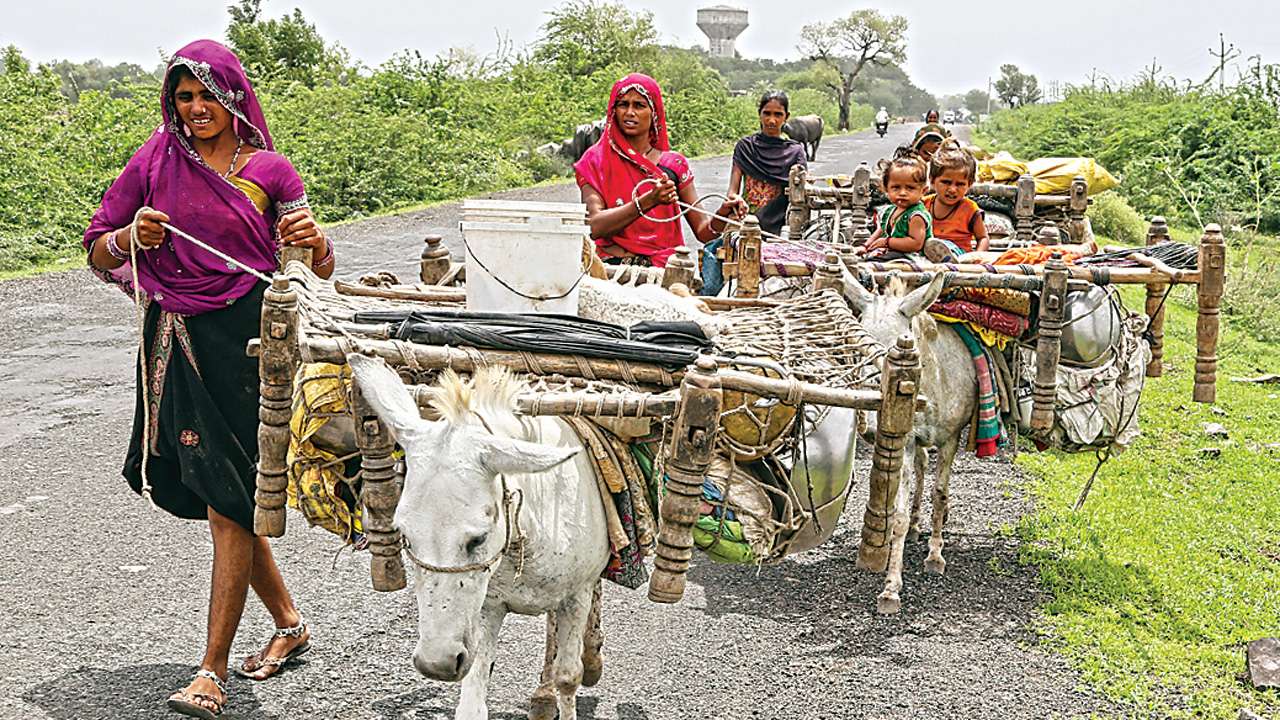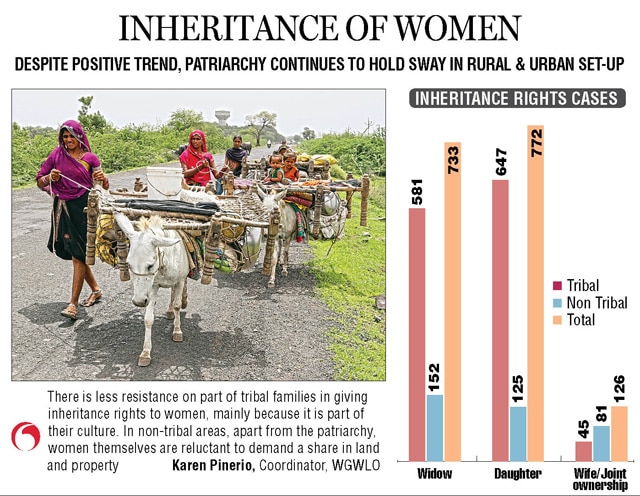'Tribals more open to women getting land, property rights'
Data reveals 78% of success stories of women getting inheritance rights come from tribal areas

Tribals
A network of organisations that works to encourage land ownership among women has found that tribals are more willing and likely to give women a share in ancestral property and land as well as inheritance rights than non-tribals.
The Working Group for Women and Land Ownership (WGWLO) – a Gujarat-level network of more than 40 NGOs and Community-Based organisations, has over the last many years, managed to secure inheritance rights for 1,631 women in the state. This mostly includes getting their names registered as owners either of houses or agricultural land.
Of the total number of cases, 1,251 of the successful cases involve tribal women while just 358 are non-tribal women. This means, 78% of the success cases involve tribal families that agreed to give women a share in land ownership.
The data is for tribal districts of Aravali, Mahisagar, Dahod, Tapi, Navsari, Dang and Narmada and non-tribal areas of Ahmedabad rural, Surendranagar, Morbi, Patan and Bhavnagar.
Interestingly, though the instance of widows and daughters being given inheritance rights were high in tribal areas, joint ownership (where the land is in the name of both husband and wife) is more popular in non-tribal families.
Karen Pinerio, coordinator for WGWLO said that tribal cultures and traditions allowed for women to have a share in the property. "In tribal societies, women have a much better status than non-tribal ones. We have found that there is less resistance on the part of tribal families in giving inheritance rights to women mainly because it is part of their culture. In non-tribal areas, apart from the patriarchy, women themselves are reluctant to demand a share in land and property," said Pinerio.
She said that a number of tribal customs such as 'bahu-patnitva', that is polygamy, and 'Khadelyo rivaaj', which means married daughters living in their paternal homes with their husbands, also lead to women having better rights to property.

"Moreover, the non-tribal areas where we work are often dominated by communities where we find an extreme level of patriarchy where the concept of a women's inheritance rights is not accepted easily," said Pinerio.
She also added that land prices were not as high in tribal areas as in non-tribal areas, which also resulted in less reluctance on part of the families to share it with female members.
As to why joint ownership was higher in non-tribal areas, she said it was because a lot of government schemes now offered better benefits if the land was in the name of women too. "As a result, in non-tribal areas, instances of wives' names being added as joint owners is on the rise. In tribal areas, the awareness about these schemes is not very high," she said.